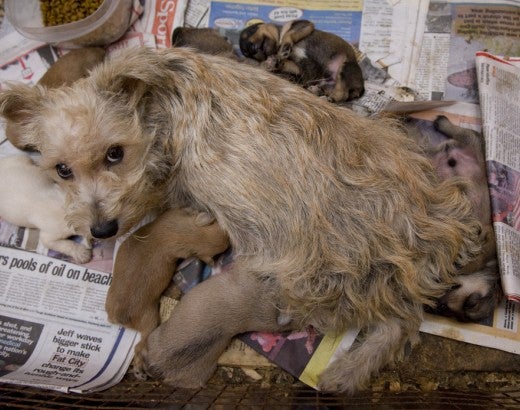A groundbreaking bill introduced in California today would end all trophy hunting of black bears in the state. If successful, California would be the first state to implement such a ban, setting a magnificent precedent for the rest of the nation to follow.
The bill was introduced by State Sen. Scott Wiener, D-San Francisco, and it reflects concerns over the fragile state of black bear populations in California. The state endured devastating wildfires last year, and wildlife there, including California's iconic bruins, are struggling to forage and survive in the changing forest ecosystems.
Each year, trophy hunters kill more than 1,000 bears in the state. This places unnecessary pressure on these animals who reproduce at an incredibly slow rate. Female bears don’t even begin reproducing until they’re about four or five years old. They only give birth every two to three years to an average of three cubs, and just a few of those cubs even survive into adulthood.
In addition to their slow reproductive rates, bear numbers are naturally limited by the availability of food, so there is no truth to the assertion that they need to be hunted. Amazingly, if a female is in poor body condition—such as from lack of food—her body will actually reabsorb her eggs during hibernation and she will produce no cubs that winter.
Climate change has also added to the stress bears face, making simple actions for survival, such as finding enough food or staying in their dens long enough to hibernate, difficult.
Most California residents are opposed to black bear hunting: a whopping 70% according to a poll conducted last month by the Remington Research Group for the Humane Society of the United States. This number included majorities in the three top bear-hunting counties of Shasta, Humboldt and Trinity.
The poll also showed that 71% of residents believe that the state should prioritize policies that promote non-lethal methods to reduce conflicts between bears and people.
The number of Californians who hunt black bears, on the other hand, is very low—fewer than 0.1% apply for a bear tag each year.
California wildlife managers looking to reduce bear-human conflicts, which usually happen over food, would get better results by emphasizing co-existence education campaigns. Such conflicts are easy enough to resolve with just a few simple steps like securing garbage, removing outdoor pet food, taking down bird feeders and cleaning up barbecue grills. Hunting cannot resolve this problem because hunters don’t target animals involved in neighborhood conflicts—they’re out in the woods looking for the most impressive trophy. In other words, agencies can’t hunt their way out of human-bear conflicts—only education coupled with actions like trash management work. The California Department of Fish and Wildlife has already done some great work to address conflicts with bears through its Keep Me Wild program, and we appreciate the steps they’ve taken to make room for these effective, non-lethal approaches, including hazing, relocation and rehabilitation. We hope it will continue to expand on these efforts.
California has already been a pioneer in ending the cruel trophy hunting of its native carnivores. Back in 2012, with overwhelming public support, the legislature outlawed the use of packs of hunting hounds to chase down bears and bobcats. In the ‘90s, California voters outlawed the trophy hunting of mountain lions. More recently, in 2015, the state banned the trapping of bobcats and followed it up with a trophy hunting moratorium in 2019. It is fitting, and right, that the state should lead the nation by banning the hunting of black bears.
The Humane Society of the United States has been working toward such a ban for a long time and we are extremely grateful to Sen. Wiener for his efforts. If you are a California resident, the bears of the Golden State need your help. Please contact your state lawmakers. Let them know you support ending the hunting of bears in the state and that they should commit to getting this bill passed immediately.



